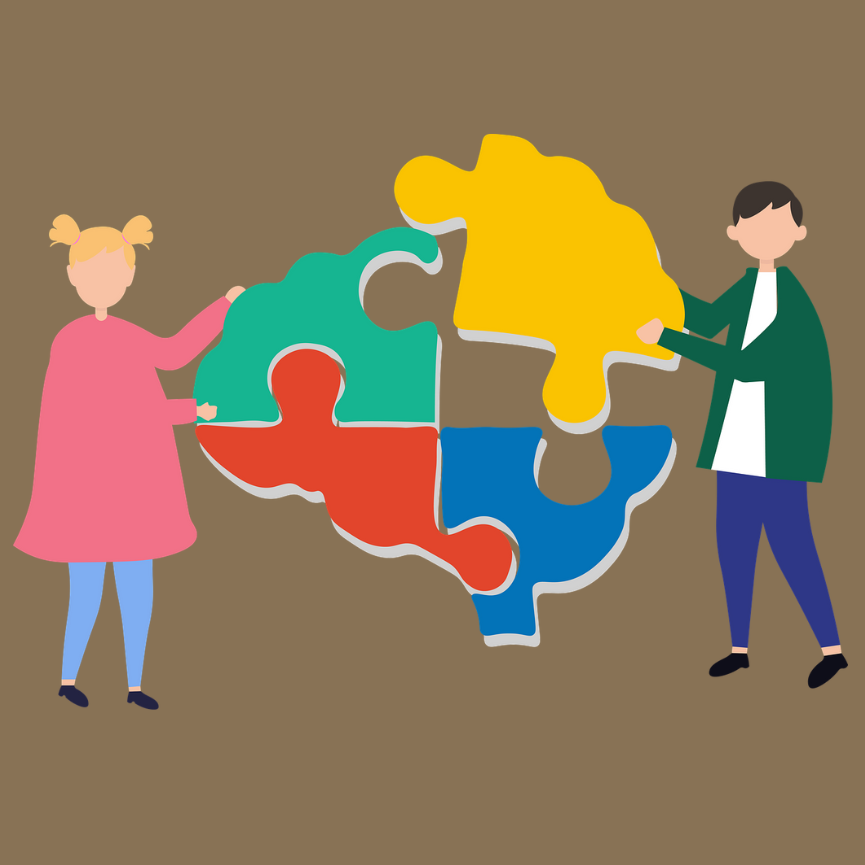
- May 09, 2024
- 120 Views
- 0 Comments
Discovering The Role Of Genetics In Autism
Autism Spectrum Disorder (ASD) is a complex neurodevelopmental condition characterized by challenges in social interaction, communication, and restricted and repetitive behaviors. While the exact causes of Autism remain elusive, research has shown that genetics play a significant role in its development. In this article, we will delve into the intricate relationship between genetics and Autism, exploring the genetic factors associated with Autism, the heritability of the disorder, and the ongoing scientific advancements in understanding the genetic basis of Autism.
Understanding the Genetic Landscape of Autism
Genetics and Neurodevelopment
Genes are segments of DNA that carry instructions for the development and functioning of our bodies. Neurodevelopmental disorders like Autism result from alterations in the genes involved in brain development. Genetic studies have identified various genes associated with Autism, each contributing to the complexity of the disorder.
Common Genetic Variations
Researchers have identified certain common genetic variations that increase the risk of Autism. These variations are present in a significant proportion of individuals with Autism but are also found in some individuals without the disorder. Common genetic variations alone are not sufficient to cause Autism but contribute to an increased susceptibility to the condition.
Rare Genetic Mutations
In addition to common genetic variations, rare genetic mutations have been found to have a more substantial impact on the development of Autism. These mutations are often de novo, meaning they occur spontaneously in the individual with Autism and are not inherited from their parents. Rare mutations can disrupt crucial genes involved in brain development and function, leading to the manifestation of Autism.
Copy Number Variations (CNVs)
Copy Number Variations (CNVs) are alterations in the number of copies of certain segments of DNA. Some CNVs have been linked to Autism, and individuals with Autism may exhibit an increased prevalence of specific CNVs compared to the general population. These CNVs can disrupt the delicate balance of gene expression in the brain, contributing to the development of Autism.
Gene-Environment Interactions
Genetics in autism plays a pivotal role, it is essential to recognize that Autism is a complex interplay between genetic and environmental factors. Certain environmental factors, such as prenatal exposures or maternal immune responses, may interact with genetic predispositions, influencing the risk of developing Autism. Further research is ongoing to unravel the intricate connections between genes and the environment in Autism.Heritability of Autism
Heritability refers to the extent to which genetic factors contribute to the development of a particular trait or disorder within a population. Autism has been found to have a high heritability rate, indicating that genetic factors substantially influence its occurrence. Twin studies have provided valuable insights into the heritability of Autism, with monozygotic (identical) twins having a higher concordance rate compared to dizygotic (fraternal) twins.
However, it is crucial to note that heritability does not imply that Autism is solely determined by genetics. The interaction between genetic and environmental factors, as well as the role of random genetic mutations, further complicates the understanding of the disorder's etiology.
Advancements in Genetic Research
Over the past decade, significant advancements have been made in understanding the genetic basis of Autism. Technological breakthroughs, such as genome-wide association studies (GWAS) and next-generation sequencing (NGS), have allowed researchers to identify specific genes and genetic variants associated with Autism. These advancements have paved the way for a more precise understanding of the underlying mechanisms and pathways involved in the development of Autism.
Implications for Diagnosis and Treatment
Genetic Testing
Genetic testing plays a crucial role in diagnosing Autism and providing individuals and families with valuable information about the underlying genetic factors contributing to the disorder. Chromosomal microarray analysis (CMA) and next-generation sequencing (NGS) are two common genetic testing methods that can detect both common genetic variations and rare genetic mutations associated with Autism.
Personalized Medicine
As our understanding of the genetic basis of Autism continues to evolve, the concept of personalized medicine holds great promise. Tailoring treatments and interventions based on an individual's genetic profile may lead to more targeted and effective approaches to support individuals with Autism.
Early Intervention
Identifying genetic markers associated with Autism can also aid in early detection and intervention. Early intervention programs can be initiated to support the developmental needs of children at risk or diagnosed with Autism, potentially mitigating the impact of the disorder on their long-term outcomes.
The role of genetics in Autism is a fascinating and rapidly evolving field of research. While genetic factors contribute significantly to the development of Autism, the disorder's complexity extends beyond genetics alone. Understanding the genetic landscape of Autism provides valuable insights into its etiology, heritability, and potential avenues for diagnosis and treatment.
As scientific advancements continue, unraveling the genetic puzzle of Autism brings hope for improved support, interventions, and ultimately a deeper understanding of this complex neurodevelopmental disorder.



Comments - 0 comments till now